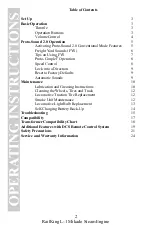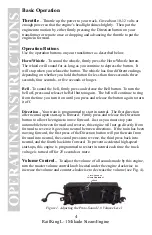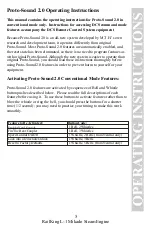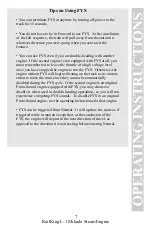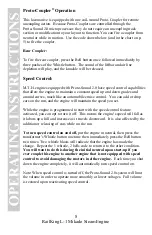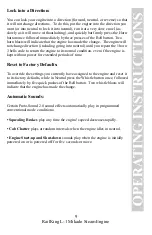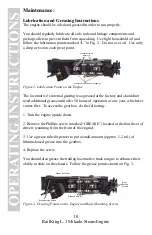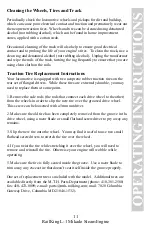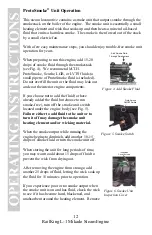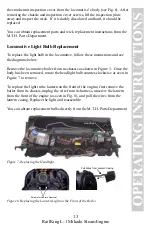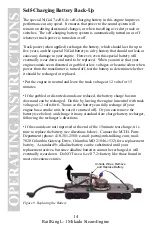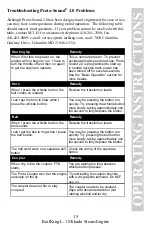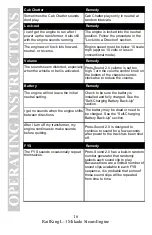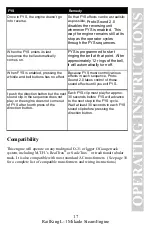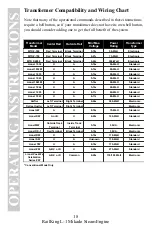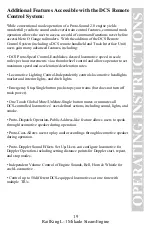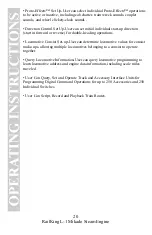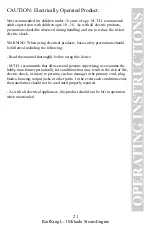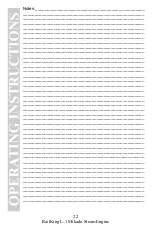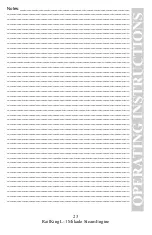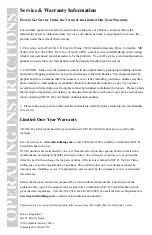
11
RailKing L-1 Mikado Steam Engine
Cleaning the Wheels, Tires and Track
Periodically check the locomotive wheels and pickups for dirt and buildup,
which can cause poor electrical contact and traction and prematurely wear out
the neoprene traction tires. Wheels and tires can be cleaned using denatured
alcohol (not rubbing alcohol), which can be found in home improvement
stores, applied with a cotton swab.
Occasional cleaning of the track will also help to ensure good electrical
contact and to prolong the life of your engine’s tires. To clean the track, use a
clean rag and denatured alcohol (not rubbing alcohol). Unplug the transformer
and wipe the rails of the track, turning the rag frequently to ensure that you are
using clean cloth on the rails.
Traction Tire Replacement Instructions
Your locomotive is equipped with two neoprene rubber traction tires on the
rear set of flanged drivers. While these tires are extremely durable, you may
need to replace them at some point.
1. Remove the side rods (the rods that connect each drive wheel to the other)
from the wheels in order to slip the new tire over the grooved drive wheel.
This screw can be loosened with a 5mm nutdriver.
2. Make sure the old tire has been completely removed from the groove in the
drive wheel, using a razor blade or small flathead screwdriver to pry away any
remains.
3. Slip the new tire onto the wheel. You may find it useful to use two small
flathead screwdrivers to stretch the tire over the wheel.
4. If you twist the tire while stretching it over the wheel, you will need to
remove and reinstall the tire. Otherwise your engine will wobble while
operating.
5. Make sure the tire is fully seated inside the groove. Use a razor blade to
trim away any excess tire that doesn’t seat itself inside the groove properly.
One set of replacement tires is included with the model. Additional tires are
available directly from the M.T.H. Parts Department (phone: 410-381-2580;
fax: 410-423-0009; e-mail: [email protected]; mail: 7020 Columbia
Gateway Drive, Columbia MD 21046-1532).


